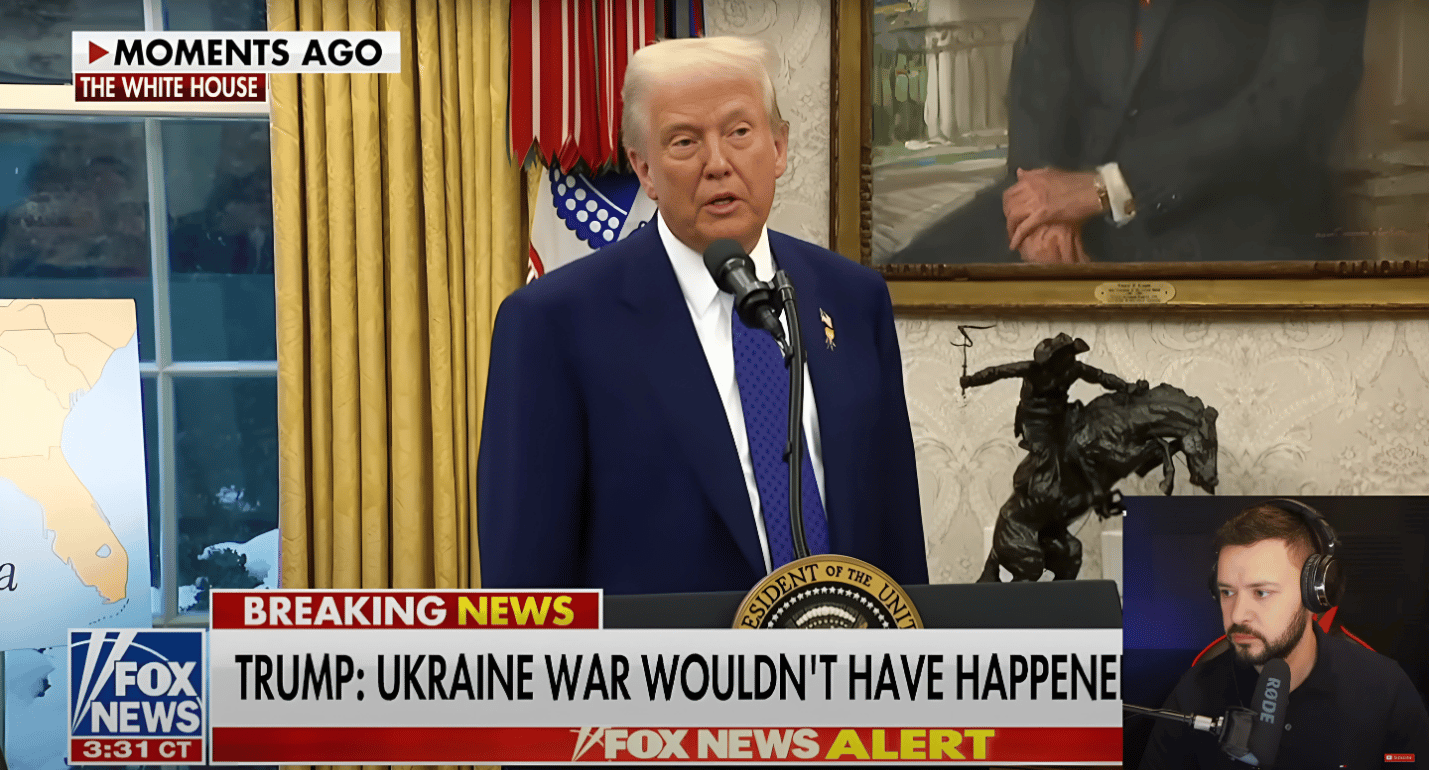President Donald Trump announced today that Russian President Vladimir Putin has agreed to “immediately begin negotiations” to end the war in Ukraine, potentially signaling a major shift in the three-year conflict that has claimed thousands of lives and displaced millions.
“We had a very good talk,” Trump told reporters at the White House on Wednesday. “President Putin wants to see it ended also. That’s good, and we’re going to work toward getting it ended as fast as possible.”
The announcement comes in Trump’s third week in office, fulfilling a campaign promise to work quickly toward resolving the conflict that began with Russia’s full-scale invasion of Ukraine in February 2022.
Teams to Begin Talks Immediately
According to the president, the two leaders agreed to have their respective teams start negotiating immediately, with plans for both presidents to eventually meet in person.
“We agreed to work together very closely, including visiting each other’s nations,” Trump stated, adding that their first face-to-face meeting would likely take place in Saudi Arabia.
After speaking with Putin for approximately 90 minutes, Trump also spoke with Ukrainian President Volodymyr Zelensky for about an hour.
Contentious Peace Terms Emerge
However, the potential peace framework is already proving controversial. Defense Secretary Pete Hegseth stated during a Ukraine Defense Contact Group meeting that “a return to Ukraine’s pre-war borders is an unrealistic objective in peace talks, as was NATO membership for Ukraine.”
When asked directly if Ukraine would return to its pre-2014 borders (before Russia annexed Crimea), Trump echoed his defense secretary’s assessment.
“Pete said today that that’s unlikely,” Trump acknowledged. “It certainly would seem to be unlikely. They took a lot of land, and they fought for that land, and they lost a lot of soldiers.” He did, however, suggest that “some of that land will come back.”
Questions About Ukraine’s Role
When asked if he viewed Ukraine as an equal member in the peace process, Trump paused before responding: “It’s an interesting question. I think they have to make peace. Their people are being killed, and I think they have to make peace.”
The president then appeared to place some blame on Ukraine for the conflict: “I said that was not a good war to go into, and I think they have to make peace.”
While ruling out NATO membership, Hegseth said the U.S. recognizes Ukraine must receive “robust security guarantees” and proposed that a non-NATO mission of European and non-European peacekeepers could be deployed to Ukraine, though with “no U.S. boots on the ground.”
First High-Level Meeting Set for Friday
The first formal meeting between U.S. and Russian delegations is expected to take place Friday in Munich, with Vice President JD Vance and Secretary of State Marco Rubio leading the American team.
White House Press Secretary Carolyn Levitt, when asked if Trump expected Ukraine to cede all disputed territory to Russia, said: “These negotiations are ongoing. I will allow the president to divulge any red lines that he may set.”
Multiple Global Crises Simultaneously Unfold
The Ukraine breakthrough comes as the administration also faces escalating tensions in the Middle East. Trump recently threatened that “all hell is going to break out” if Hamas doesn’t release all remaining Israeli hostages by Saturday. Hamas responded today that Trump’s threats have “no value.”
Meanwhile, DOGE (Department of Government Efficiency) head Elon Musk continues to make headlines with claims of uncovering “massive fraud” in federal entitlement programs including Social Security, Medicare, and Medicaid, which he describes as “the biggest fraud in U.S. history” amounting to “hundreds of billions of dollars.”
Criticism of Previous Administration
Throughout his remarks, Trump criticized the Biden administration’s handling of the Ukraine conflict, claiming it “would have never happened” under his leadership and citing the $350 billion in U.S. aid provided to Ukraine since 2022.
Trump noted that his administration is demanding “security on our money” from Ukraine in the form of collateral. “They have rare earth and they have oil and gas and they have a lot of other things, and we’re asking for security on our money.”
